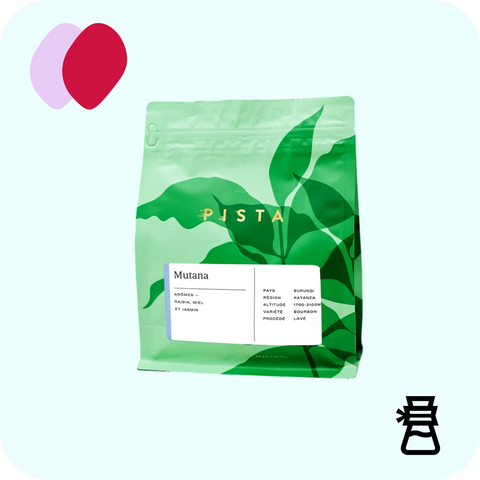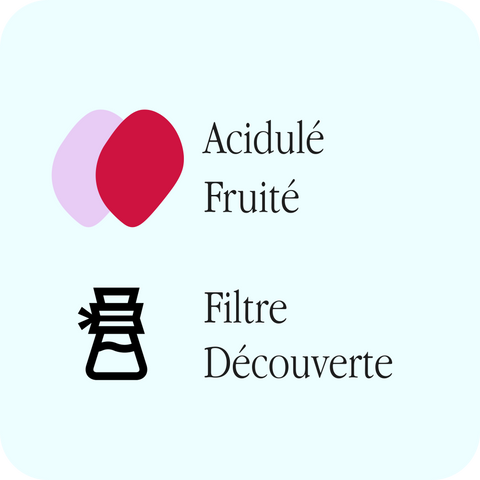

Pista - Muntana
Coffee beans
Notes - Grape, honey and jasmine
Origin - Burundi
Process - Washed
Profiles - Tangy and fruity
Recommendations - Discovery Filter
The arrival of spring marks the return of our Burundi coffees! For the sixth consecutive year, we are pleased to present a coffee resulting from the remarkable work of our friends at Long Miles Coffee Project. This year, we chose a batch from the Heza washing station, located in Kayanza province, in the northwest of the country.
This batch comes from Mutana Hill and its 858 producers. A few kilometers from the Kibira Forest, this region benefits from a unique microclimate, with morning mists moistening the fertile land. The soil, a mixture of silt and sand, allows for the cultivation of a wide variety of crops: wheat, cassava, potatoes, onions, peas, beans, sweet potatoes, passion fruit, and tea grow alongside coffee trees. Hidden in the heart of the hill, a waterfall is concealed behind the eucalyptus trees and tea plantations, offering a landscape of exceptional beauty to those who dare to venture off the beaten track.
Long Miles Coffee Project embodies the positive impact specialty coffee has on these local communities. This project, which began as a community initiative, has become a model of sustainability and equity, enabling hundreds of producers to access the specialty coffee market. This year, we were able to secure this batch again thanks to our import partner, Osito Coffee.
Grown between 2,100 and 2,200 meters above sea level, this coffee is made from the Bourbon variety. After a careful harvest at peak ripeness, the cherries are sorted by flotation and then by hand to select only the best. They are then mechanically pulped, fermented dry for 12 hours, and then in a water tank for another 12 hours. After meticulous washing, the coffee is slowly dried on raised beds for 16 to 20 days, under careful supervision. This rigorous process results in a floral and delicate coffee, offering a complex tasting experience in both espresso and filter coffee.

